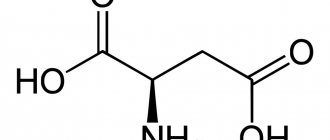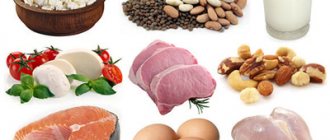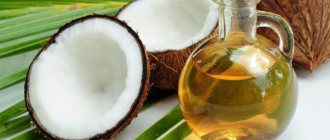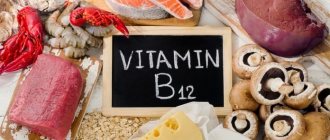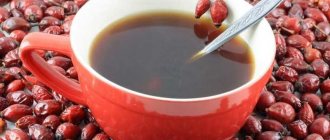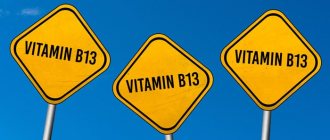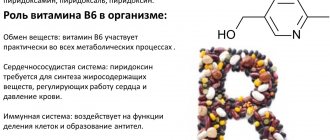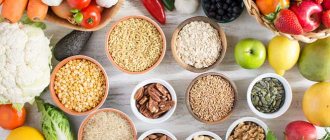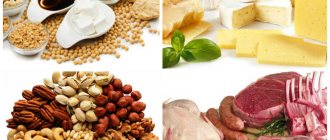Today there is debate about what trans fats are, what foods they contain and how they are harmful. Some argue that modified lipids are not at all a unique invention of the chemical industry; they are also found in nature. It is believed that the harm from their use is greatly exaggerated. Others advocate an absolute ban on trans isomers in the food industry due to the irreversible changes in the body that fast food and margarine lead to.
Read more about how to successfully complement your table in order to effectively get rid of excess weight, maintain a blooming appearance and a good mood.
Our additional services: Bioimpedance | Marutaka Massage | Pressotherapy | Ion-Detox
Together with a specialist from the Elena Morozova weight loss clinic, we will figure out what a hydrogenated substance is, what danger it poses to humans, and what products it contains.
Trans fats - what are they and in what foods are they present?
This is a separate class of saturated fats, which is widely used in the food industry and catering establishments. Despite the fact that people have no need for this component at all, it is highly popular. This is due to the following reasons:
- long shelf life;
- convenient consistency;
- cheapness;
- versatility - spreads are used for baking and frying, for spicy snacks and desserts;
- contribute to the creation of an appetizing appearance of the finished dish.
This culinary additive, which has proven itself as a convenient ingredient, is obtained from liquid vegetable oils through chemical processing. It's called hydrogenation, the essence of the process is to make fatty acids (from cottonseed, sunflower, soybean or other oils) saturated, that is, solid. To achieve the required reaction, a temperature of about 200 degrees, the supply of hydrogen under pressure and the presence of catalysts are needed - they are usually copper-nickel salts.
Nutritionist's comment:
It should be noted that trans fats also include some natural fats that are part of the meat of herbivores. Also, during frying, a small part of the oil takes on the structure of trans fat. But it is still correct to consider this substance a product of the chemical industry, since it is from these enterprises that it enters our food in such quantities that can affect health and well-being. Natural analogues are contained in such a small proportion that they have no effect.
The dangers of trans fats
Modified molecules lead to disruption of the metabolic processes of fatty acids. The results of studies conducted at the Harvard School of Public Health showed that two percent of trans fats from the total amount of calories is enough to provoke the development of coronary heart disease in a person.
Fatty acids are involved in the synthesis of sex hormones, therefore, when consuming trans fats, the concentration of testosterone can be reduced. In addition, insulin synthesis deteriorates, which entails increased deposition of calories into the subcutaneous fat layer.
Content in food
When they talk about the need to exclude fats from the menu, rest assured that they are talking about a component such as trans fats; other lipids are not harmful when consumed in moderation. Although they were not developed at all in order to become the sworn enemy of nutritionists and adherents of a healthy lifestyle.
At the beginning of the 20th century, soybeans began to be actively grown, which were highly valued for their large amount of protein. Farmers' fields were taken over by a low-maintenance crop that could feed many people on a modest budget. As a result of this boom, a large by-product emerged: soybean oil. Hydrogenation made it possible to transform it from a useless raw material into a valuable alternative to pork fat, which was not enough for everyone. This is how margarine appeared. It was very actively consumed as food, without realizing the negative impact for a long time. Only at the end of the 20th century did doctors come to the conclusion that such a component had a very detrimental effect on the functioning of many organs and systems.
What are trans fats?
Expert opinion
Evgenia Sokolova
nutritionist
— Vegetable oils contain up to 75-90% unsaturated fatty acids, which are beneficial for our body. They participate in metabolic processes and stimulate the immune system. But the problem is that such oils cannot be stored for a long time, and the more useful acids they contain, the faster they deteriorate. This problem was solved using hydrogenation technology, which appeared almost a hundred years ago - oil is heated to a certain temperature and hydrogen is passed through it.
The result is a solid mass - salomas. This hard fat is resistant to oxidation and has a number of other advantages: it is cheaper than oil, does not spoil longer and can be used over and over again. Already on the basis of this mass, margarines are made, spreads - products based on a mixture of vegetable and milk fats - confectionery fat, and so on.
Then, at the beginning of the last century, no one was worried about the “insignificant” fact that during the process of hydrogenation, part of the beneficial fatty acids (about 60%) turns into trans isomers, that is, the spatial structure of the molecules of these same acids changes. They “fold” in the other direction, and have a completely different effect on our body.
Why are trans fats dangerous?
There are components used in the cosmetics and food industries, the negative effects of which are not convincingly proven. However, they are banned in many prosperous countries. An example would be pesticides or parabens. Hydrogenated fats can cause much more serious damage, but this did not cause a ban on their use in Russia. On store shelves and in fast food outlets you can easily buy products with a high margarine content.
There is plenty of convincing evidence regarding the harm of trans fats to the human body; this is not a debatable issue. Here are a few facts about how they affect you.
Disorders of the cardiovascular system
Hydrogenated fats contribute to an increase in the level of “bad” cholesterol, and, on the contrary, there is less “good” cholesterol. This leads to the formation of cholesterol plaques on the inner walls of blood vessels and narrowing of their lumen. Subsequently, under such conditions, many serious diseases can develop that reduce the quality of life and can cause death.
Nutritionist's comment:
It is not recommended to eat foods that contain trans fats due to an increased risk of thrombosis. Lipids with this structure interfere with the normal synthesis of prostacyclin, which causes the formation of blood clots. On the contrary, the production of thromboxane increases excessively, which contributes to blood thickening.
Brain dysfunction and multiple sclerosis
Modified fats are incorporated into brain cells, displacing the necessary docosahexaenoic acid, which reduces their susceptibility to nerve impulses. Instead of proper nutrition, the epithelium receives a synthetic analogue, which is not capable of performing important functions. This negatively affects mental processes, memory, and the ability to concentrate. There is a risk of developing senile dementia.
This is the basis for the hypothesis that excessive consumption of confectionery products containing trans fats in childhood leads to the development of atherosclerosis in the future. This is due to the fact that modified molecules are integrated into the nervous tissue, displacing Omega-3 lipids from cell membranes. The researchers concluded that there is a direct connection with diet.
Premature aging
Every time we eat baked goods with margarine, we bring our old age closer. This is due to oxidative stress, which occurs due to the presence of dehydrated fats in the body. At such moments, a critical amount of free radicals is formed, which negatively affects both health and the appearance of the body.
If you want to prolong youth, then your diet should be dominated by foods that do not contain trans fats, but antioxidants - these are fresh fruits and berries, dried fruits, ginger, green tea.
Comedones, areas of inflammation on the skin
Another consequence of poor nutrition is clogged pores, dull complexion, increased sebum viscosity, decreased local immunity and vulnerability to bacteria. If inflamed elements regularly appear on your face and there are a lot of blackheads and milia, then it’s time to reconsider your diet and give up saturated fats in favor of unsaturated fats, and also enrich the menu with fresh vegetables and fruits.
Obesity
Excess body weight is also a consequence of eating fatty, unhealthy foods. Typically, trans fats are found in sweets, fast food and snacks that are generously flavored with flavor enhancers and sugar. Such food cannot in any way ensure a slim figure for your figure, as the following processes occur:
- control over appetite is completely lost - you constantly want to eat;
- high-calorie foods do not allow you to meet your normal daily caloric intake;
- the so-called “insulin circle” is triggered, in which a lot of insulin is released into the blood due to the high glycemic index of the foods consumed, and as a result, a feeling of hunger quickly sets in.
If you decide to lose excess weight for a long time, then snacks and sweets with a significant content of trans-isomers must be excluded from your diet.
Diabetes mellitus type 2
Hydrogenated fats lead to a decrease in the sensitivity of pancreatic cells to insulin, and there is also a violation of the biochemistry of inflammatory processes. Products from the list containing trans fats affect metabolism, provoking serious pathological changes. Such consequences may not occur soon, but the harmful effects have been proven. Don’t wait until your health and figure begin to deteriorate; give up junk food today.
The harm of trans fats
Trans fats cause irreparable harm to humans because they gradually accumulate in the body, accelerate aging, and cause a number of diseases:
- Most often, the heart and blood vessels suffer from trans fats, with many ensuing consequences. Cardiovascular diseases occupy first place among other diseases of civilization.
- The immune system weakens.
- Eating foods containing trans fats contributes to the occurrence of diseases such as obesity and diabetes.
- The quality of breast milk in nursing mothers deteriorates.
- The risk of having low birth weight babies increases.
- The body's ability to withstand stress decreases, private depression and chronic fatigue occur.
- Visual acuity deteriorates.
- The level of the male sex hormone testosterone drops, and sperm quality deteriorates.
- Eating foods with trans fats contributes to joint and connective tissue diseases.
To determine whether a product contains trans fats, you must carefully study the label.
Where can trans isomers be found?
Current legislation recommends that manufacturers indicate the presence of trans fats in products, but does not oblige them. Therefore, studying the label is not always 100% informative. We offer a visual table of which food products are most likely to contain trans fats:
On the packaging, such fat may be called cooking fat, hydrogenated fat, modified vegetable fat, or margarine. Even if chemically treated lipids are not used in the production of the listed delicacies, you will not lose anything by refusing them. Such delicacies will not lead to a beautiful figure. If you want to get rid of extra pounds, replace cakes, sweets and chips with healthy foods.
What are trans fats
Trans fatty acids, or trans fats, are created when manufacturers convert liquid oils into solid fats.
Take hard margarine for example. Manufacturers create trans fats through a process called hydrogenation. In a nutshell, hydrogenation is the process by which vegetable oils are converted into solid fats simply by adding hydrogen atoms. Why is hydrogenation used? Hydrogenation increases the shelf life and stability of taste and smell of food products. What foods contain trans fats? They can be found in the most unhealthy foods, including:
- margarine
- crackers
- waffles
- candies
- bakery products
- cookie
- granola bars
- chips
- snacks
- salad dressings
- vegetable oils
- butter
- fast food
- semi-finished products
- and many other processed foods
Trans fatty acids occur naturally in small amounts in some foods such as beef, pork, lamb, butter and milk, but most trans fatty acids come from hydrogenated foods. Products containing partially hydrogenated oils may contain trans fats.
How to recognize by eye
If it is not possible to examine the packaging - you are being treated to a dish at a holiday or picnic - you can determine the presence of hydrogenated lipids by the following signs:
- food does not spread, maintaining a solid or semi-solid consistency even at room temperature;
- perfect golden roasting - due to the high smoke point of trans fats, unlike other saturated fats, products after intensive heat treatment do not have any traces of burning;
- A briquette of butter that you just took out of the refrigerator is cut plastically in the absence of modified additives, pieces would break off from it.
But it’s still better to rely on the information on the packaging. Try to make reading the label a mandatory ritual before every purchase.
Summarize
“Ruminant” (natural) trans fats present in animal products are safe for human health. But industrial (artificial) trans fats added to processed foods are highly toxic. Studies have shown a significant link between the consumption of artificial trans fats and the development of cardiovascular problems, including heart disease.
Their consumption is also associated with long-term inflammation, insulin resistance and the risk of developing type 2 diabetes, especially in people who are overweight or obese.
Although the amount of trans fat in the modern diet has decreased, average intake is still dangerously high. Unfortunately, food labels and processed vegetable oils cannot always be trusted. Many foods that claim to be free of trans fats may actually contain them.
Minimum intake of trans fatty foods
The body does not receive any benefit from trans fats, only harm; they only interfere with normal biochemical reactions in the body and contribute to the development of various diseases. If you consume just 2% of your daily calories in the form of hydrogenated fats, your risk of developing cardiovascular disease will increase by 25%. And this is only 4-8 g of vegetable-cream spread or 7 g of milk chocolate.
It is fair to say that there is no acceptable norm. It is better to use natural saturated lipids than modified unsaturated ones. For example, it is better to fry in coconut oil or lard - these components are characterized by high stability. But even if such a safe alternative exists, you should not overindulge in fried foods if you want to lose weight or stay slim.
Nutritionist's comment:
Sometimes people, having learned about the dangers of hydrogenated fats, ask how to remove trans fats from the body? It is important to understand that trans isomers that are integrated into the cellular structure of organs - liver, brain or nervous tissue - cannot be replaced with the correct “building material”. But this does not matter, because the life of each cell is short, its place is soon taken by a new one. And if you consume products with beneficial components of the Omega-3 and Omega-6 groups, the functionality of the tissue will be restored. Switching to a healthy diet will stop the degradation of the epithelium.
What are trans fats?
These are modified molecules that appear in vegetable unsaturated fats as a result of heat treatment. A small concentration of trans fats is present in nature, but increases when the substance reacts with water. Their number can increase to twenty, and sometimes up to fifty percent. The champions in the content of such modified compounds are fast food and semi-finished products.
Trans fats, as has been proven in numerous studies, do not benefit the body, but rather the opposite. They disrupt metabolic function, which leads to obesity and deterioration or development of various diseases of the circulatory system and heart muscle.
How to protect yourself from eating unhealthy fatty foods
If you decide to change your lifestyle and at the same time improve your body shape, the first thing is to take control of your diet. The main changes in it are the rejection of fast carbohydrates and trans fats, as well as strict regulation of fatty foods. We offer simple rules:
- if you cannot completely eliminate foods with trans fats, at least reduce the proportion of this component to 1 g per day;
- do not fry meat and fish in oil, stew, grill, bake in its own juices;
- increase the proportion of fresh vegetables, fruits and berries in your diet, their consumption will reduce the craving for unhealthy snacks, which are widely offered in every cafeteria and supermarket;
- drink more clean water - this will help keep your hunger under control;
- exercise regularly - this will speed up your metabolism and, along with it, the process of cell division in organs and tissues.
Look at our Clients' Acknowledgments and Success Stories – View
Remember, trans fats are created only to improve the visual appeal of food and extend shelf life, and their presence does not improve the taste and nutritional characteristics. Specialists at Elena Morozova’s clinic will help you create a diet for you that will contain natural and harmless products and offer recommendations for a healthy lifestyle. This way you can guarantee proper nutrition and weight loss without harm to the body.
Content of trans fats in products
Table of percentage of trans fats in food.
| Product | Content |
| Pepperoni sausage | 1.53 g |
| Chocolate cupcake with chocolate icing | 1.32 g |
| Ground beef, raw, 20% fat | 1.18 g |
| Sweet yeast dough buns | 1.10 g |
| Swiss cheese | 0.99 g |
| Beef brisket raw | 0.98 g |
| Cheddar cheese | 0.92 g |
| Boiled beef tongue | 0.84 g |
| Cheese Queso Fresco | 0.83 g |
| Mozzarella cheese | 0.72 g |
| Egg omelette | 0.71 g |
| Cheeseburger (McDonald's) | 0.65 g |
| Beef thin edge (Striploin) raw | 0.62 g |
| Beef brain raw | 0.61 g |
| Raw turkey skin | 0.56 g |
| Soybean oil | 0.53 g |
| Beef thick edge raw | 0.49 g |
| Salami | 0.48 g |
| Snickers chocolate bar | 0.44 g |
| Hamburger (McDonald's) | 0.43 g |
| Canola oil | 0.40 g |
| Beef liver, stewed or fried | 0.37 g |
| Raw chicken skin | 0.35 g |
| Chicken egg yolk in powder form | 0.35 g |
| Twix chocolate bar | 0.34 g |
| Beef neck (Chuck Eye Roll) raw | 0.31 g |
| Boiled beef kidneys | 0.27 g |
| Cooked beef (meat without fat) | 0.26 g |
| Cloves (spice) seasoning powder | 0.25 g |
| Dove chocolate (milk) | 0.25 g |
| Raw beef, meat without fat | 0.23 g |
| Smoked sausage | 0.23 g |
| Raw pork ribs (ribs) | 0.22 g |
| Chocolate bar Milky Way | 0.21 g |
| Boiled beef tripe | 0.20 g |
| Beef shoulder raw | 0.19 g |
| Mayonnaise | 0.19 g |
| Beef flank, peritoneum, flank, raw | 0.19 g |
| Boiled sausage | 0.18 g |
| Beef heart raw | 0.18 g |
| Beef shank raw | 0.17 g |
| Tortilla | 0.17 g |
| Beef liver raw | 0.17 g |
| Onion rings | 0.16 g |
| Boiled beef heart | 0.16 g |
| Beef tenderloin (Tenderloin) raw | 0.15 g |
| Beef tripe raw | 0.15 g |
| Mashed potatoes with milk and butter, prepared | 0.15 g |
| Chia seeds | 0.14 g |
| Raw pork stomach | 0.13 g |
| Chicken gizzards, boiled or stewed | 0.13 g |
| Beef ribs raw | 0.12 g |
| Pork neck (neck) raw | 0.12 g |
| Dark chocolate (45-59% cocoa) | 0.11 g |
| Boiled pork stomach | 0.11 g |
| Beef rump, raw rump | 0.11 g |
| Chicken breast raw, skin on | 0.11 g |
| Roasted turkey (meat and skin of the whole carcass) | 0.10 g |
| Dry muesli (with dried fruits and nuts) | 0.10 g |
| Beef kidneys raw | 0.10 g |
| KitKat chocolate bar | 0.10 g |
| Fried chicken liver | 0.10 g |
| Safflower oil | 0.10 g |
| Pork knuckle, raw shank | 0.10 g |
| Flaxseed oil | 0.09 g |
| Dove chocolate (dark) | 0.09 g |
| Raw pork ham and rump | 0.09 g |
| Chicken liver stewed or boiled | 0.09 g |
| Pork baked in the oven | 0.09 g |
| Cow's milk 2% fat | 0.09 g |
| Raw chicken thighs, meat with skin | 0.09 g |
| Turkey heart raw | 0.08 g |
| Baked chicken wings | 0.08 g |
| Raw pork carbonate | 0.08 g |
| Baked chicken thighs (meat with skin) | 0.08 g |
| Baked turkey thigh (fillet) | 0.08 g |
| Dark chocolate (60-69% cocoa) | 0.08 g |
| Peanut paste | 0.08 g |
| Skittles candy | 0.07 g |
| Pork ribs (country) raw | 0.07 g |
| Cottage cheese 2% fat | 0.07 g |
| Chicken liver raw | 0.07 g |
| Raw minced chicken | 0.07 g |
| Raw pork, meat with fat | 0.06 g |
| Peeled pumpkin seeds | 0.06 g |
| Raw turkey, meat and skin of the whole carcass | 0.06 g |
| Cooked turkey heart | 0.06 g |
| Raw chicken wings | 0.06 g |
| Dry egg noodles | 0.06 g |
| Raw chicken gizzards | 0.06 g |
| Chicken legs (legs) raw, meat with skin | 0.06 g |
| Stewed turkey liver | 0.06 g |
| Bread crackers | 0.06 g |
| Baked swordfish | 0.06 g |
| Turmeric spice powder | 0.06 g |
| Baked chicken drumstick (meat with skin) | 0.06 g |
| Baked oysters | 0.05 g |
| Turkey meat (turkey meat) baked (whole carcass meat) | 0.05 g |
| Cooked stewed pork | 0.05 g |
| Raw swordfish | 0.05 g |
| Raw chicken drumstick, meat with skin | 0.05 g |
| Turkey liver raw | 0.04 g |
| Fried cooked pork | 0.04 g |
| Naan flatbread Indian wheat flatbread | 0.04 g |
| Baked pink salmon | 0.04 g |
| Fried chicken egg | 0.04 g |
| Raw chicken egg | 0.04 g |
| Kefir | 0.04 g |
| Pork tenderloin raw | 0.04 g |
| Pink salmon raw | 0.03 g |
| Cracker | 0.03 g |
| Raw oysters | 0.03 g |
| Paratha flatbread | 0.03 g |
| White wheat bread | 0.03 g |
| Baked chicken legs (meat with skin) | 0.03 g |
| Turkey gizzards raw | 0.03 g |
| Dark chocolate (70-85% cocoa) | 0.03 g |
| Semolina porridge on water | 0.03 g |
| Pickled ginger | 0.03 g |
| Boiled egg noodles | 0.03 g |
| Baked halibut | 0.03 g |
| Coconut oil | 0.03 g |
| Roasted peanuts | 0.03 g |
| Stewed turkey gizzards | 0.03 g |
| Boiled turkey breast (fillet) | 0.02 g |
| Baked turkey drumstick (without skin) | 0.02 g |
| Baked sockeye salmon | 0.02 g |
| Dry baked muesli (granola), crispy, with honey | 0.02 g |
| Whole grain wheat bread | 0.02 g |
| Raw sockeye salmon | 0.02 g |
| Multigrain crispbread | 0.02 g |
| Fresh almonds | 0.02 g |
| Raw shellfish | 0.02 g |
| Raw pork belly | 0.02 g |
| Fried flounder | 0.01 g |
| Boiled crab | 0.01 g |
| Raw pork shoulder | 0.01 g |
| Turkey drumstick, raw, without skin | 0.01 g |
| Turkey breast (fillet) raw | 0.01 g |
| Chicken breast, boiled or stewed (without skin) | 0.01 g |
| Lobsters (lobsters, spiny lobsters) boiled | 0.01 g |
| Sea bass (red) baked | 0.01 g |
| Raw flounder | 0.01 g |
| Lobsters (lobsters, spiny lobsters) raw | 0.01 g |
| Baked chicken breast (skinless) | 0.01 g |
| Cooked scallop | 0.01 g |
| Table mustard, paste | 0.01 g |
| Sea bass (red) raw | 0.01 g |
| Edamame cooked | 0.01 g |
| Roasted almonds | 0.01 g |
| Turkey meat (turkey meat), raw, whole carcass meat | 0.01 g |
| Chicken breast fillet, raw meat, without skin | 0.01 g |
| Scallop raw | 0.01 g |
| Dry sorghum grains | 0.01 g |
| Raw shrimp | 0.00 g |
| Whole grain sorghum flour | 0.00 g |
| Dried cranberries | 0.00 g |
| Millet flour | 0.00 g |
| Boiled shrimp | 0.00 g |
| Dry whole wheat noodles | 0.00 g |
| Tuna canned in its own juice | 0.00 g |
| Dry long grain brown rice | 0.00 g |
| Dry steamed brown rice | 0.00 g |
| Oatmeal porridge (oatmeal) with water (cooked) | 0.00 g |
| Cod raw | 0.00 g |
| Sorghum flour | 0.00 g |
| Baked cod | 0.00 g |
| Red beans (Kidney) sprouted fresh | 0.00 g |
| Boiled variegated beans (Pinto) | 0.00 g |
| Fresh sprouted variegated beans (Pinto) | 0.00 g |
| Boiled pink beans | 0.00 g |
| Boiled black beans | 0.00 g |
| Dried goji berries | 0.00 g |
| Boiled black-eyed beans | 0.00 g |
| Fresh blueberries | 0.00 g |
| Carrots raw (fresh) | 0.00 g |
| Boiled carrots | 0.00 g |
| Raw seaweed | 0.00 g |
| Canned carrot juice | 0.00 g |
| Boiled pigeon peas | 0.00 g |
| Dried carrots | 0.00 g |
| Peas boiled in water (ripe) | 0.00 g |
| Feijoa fresh | 0.00 g |
| Canned carrots | 0.00 g |
| Fresh green peas | 0.00 g |
| Fennel, raw (fruit or root) | 0.00 g |
| Frozen carrots | 0.00 g |
| Fresh sprouted peas | 0.00 g |
| Canned green peas | 0.00 g |
| Fresh medlar | 0.00 g |
| Physalis fresh | 0.00 g |
| Fresh mint | 0.00 g |
| Fresh vegetable physalis | 0.00 g |
| Fresh peppermint | 0.00 g |
| Jujube (Chinese date) fresh | 0.00 g |
| Mustard seeds ground mustard | 0.00 g |
| Dates Deglet nur | 0.00 g |
| Fresh pomegranate | 0.00 g |
| Energy drink Monster Energy | 0.00 g |
| Dates Majul | 0.00 g |
| Peanut flour | 0.00 g |
| Canned pomegranate juice | 0.00 g |
| Energy drink Red Bull | 0.00 g |
| Fresh pistachios | 0.00 g |
| Fresh grapefruit | 0.00 g |
| Naranjilla frozen | 0.00 g |
| Roasted pistachios (no salt) | 0.00 g |
| Chickpea flour | 0.00 g |
| Fresh grapefruit juice | 0.00 g |
| Nori seaweed, raw | 0.00 g |
| Dry chickpeas | 0.00 g |
| Boiled chickpeas | 0.00 g |
| Soy flour | 0.00 g |
| Wood mushroom raw | 0.00 g |
| Multigrain bread | 0.00 g |
| Shiitake mushrooms, cooked | 0.00 g |
| Raw oyster mushrooms | 0.00 g |
| Raw chanterelle mushrooms | 0.00 g |
| Fresh breadfruit | 0.00 g |
| Maitake mushrooms raw | 0.00 g |
| Fried portobello mushrooms | 0.00 g |
| Fresh cucumbers | 0.00 g |
| Horseradish, ready to eat | 0.00 g |
| Morel mushrooms, raw | 0.00 g |
| Fresh dandelion leaves | 0.00 g |
| Fresh persimmon | 0.00 g |
| Enoki mushrooms raw | 0.00 g |
| Fresh black persimmon (sapota) | 0.00 g |
| Chicory root, raw | 0.00 g |
| Fresh pear | 0.00 g |
| Instant chicory (ready-made coffee) | 0.00 g |
| Canned pear juice (nectar) | 0.00 g |
| Canned olives | 0.00 g |
| Fresh chicory leaves | 0.00 g |
| Canned apricots | 0.00 g |
| Fresh guava | 0.00 g |
| Ground savory | 0.00 g |
| Dried mint | 0.00 g |
| Canned green olives | 0.00 g |
| Canned pineapples | 0.00 g |
| Chayote raw | 0.00 g |
| Fresh nectarines | 0.00 g |
| Prickly pear (fruit) fresh | 0.00 g |
| Nestea black tea with lemon | 0.00 g |
| Oregano oregano, dried | 0.00 g |
| Frozen artichokes | 0.00 g |
| Fresh artichokes | 0.00 g |
| Black tea without sugar, prepared | 0.00 g |
| Fresh Spanish artichokes | 0.00 g |
| Fresh daikon | 0.00 g |
| Dry basil | 0.00 g |
| Pickled cucumbers (pickled) | 0.00 g |
| Fresh jambolan | 0.00 g |
| Fenugreek seeds | 0.00 g |
| Fresh eggplant | 0.00 g |
| Fresh jackfruit | 0.00 g |
| Cherimoya fresh | 0.00 g |
| Canned bamboo shoots | 0.00 g |
| Gin 45 degrees alcohol | 0.00 g |
| Raw bamboo shoots | 0.00 g |
| Durian fresh | 0.00 g |
| Canned heart of palm | 0.00 g |
| Raw garlic | 0.00 g |
| Fresh melon | 0.00 g |
| Papaya juice (nectar) canned | 0.00 g |
| Lentils boiled in water | 0.00 g |
| Fresh cantaloupe melon | 0.00 g |
| Fresh papaya | 0.00 g |
| Fresh sprouted lentils | 0.00 g |
| Prickly pear (leaves) raw | 0.00 g |
| Fresh blackberries | 0.00 g |
| Fern (shoots) raw | 0.00 g |
| Butterbur raw | 0.00 g |
| Canned blackberry juice | 0.00 g |
| Parsnip root raw | 0.00 g |
| White or yellow fresh grapefruit | 0.00 g |
| Cooked squash | 0.00 g |
| Raw champignons | 0.00 g |
| Canned beans (ripe) | 0.00 g |
| Raw beetroot | 0.00 g |
| Fried champignons | 0.00 g |
| Beans, raw, mature | 0.00 g |
| Brown raw champignons | 0.00 g |
| Broccoli frozen | 0.00 g |
| Ground allspice | 0.00 g |
| Saffron spice | 0.00 g |
| Brussels sprouts frozen | 0.00 g |
| Paprika spice, powder form | 0.00 g |
| Green bell pepper, fresh | 0.00 g |
| Fresh mulberries | 0.00 g |
| Vanilla extract | 0.00 g |
| Patisson raw | 0.00 g |
| Fresh red bell pepper | 0.00 g |
| Seedless raisins | 0.00 g |
| Ground black pepper | 0.00 g |
| Frozen cherries | 0.00 g |
| Ground white pepper | 0.00 g |
| Ginger extract powder | 0.00 g |
| Red hot fresh chili pepper | 0.00 g |
| Chocolate white | 0.00 g |
| Fresh yellow bell pepper | 0.00 g |
| Raw ginger root | 0.00 g |
| Ground dry chili pepper | 0.00 g |
| Frozen bell pepper (green) | 0.00 g |
| Hot chili peppers dried in the sun | 0.00 g |
| Frozen red bell pepper | 0.00 g |
| Canned peach juice (nectar) | 0.00 g |
| Green hot chili pepper fresh | 0.00 g |
| Fresh peach, pitted | 0.00 g |
| Fresh parsley | 0.00 g |
| Canned peaches | 0.00 g |
| Beer dark or light | 0.00 g |
| Dried parsley | 0.00 g |
| Fresh Suriname cherries | 0.00 g |
| Fresh figs | 0.00 g |
| Yogurt | 0.00 g |
| Fresh spinach | 0.00 g |
| Plantains cooked | 0.00 g |
| Boiled spinach | 0.00 g |
| Fresh sorrel | 0.00 g |
| Fried or baked zucchini (without oil) | 0.00 g |
| Fresh yellow tomatoes | 0.00 g |
| Fresh pomelo | 0.00 g |
| Green tomatoes, raw | 0.00 g |
| Fresh tomatoes | 0.00 g |
| Fresh orange tomatoes | 0.00 g |
| Cooked tomatoes | 0.00 g |
| Dried tarragon | 0.00 g |
| Fresh purslane | 0.00 g |
| Fresh apples | 0.00 g |
| Pickled capers | 0.00 g |
| Canned apple juice | 0.00 g |
| Caramel popcorn | 0.00 g |
| Fresh Brussels sprouts | 0.00 g |
| Java apple fresh | 0.00 g |
| Boiled Brussels sprouts | 0.00 g |
| Yams cooked | 0.00 g |
| Fresh cabbage, white cabbage | 0.00 g |
| Boiled cabbage (white cabbage) | 0.00 g |
| Fresh red cabbage | 0.00 g |
| Raw curly cabbage | 0.00 g |
| Sprouted wheat bread | 0.00 g |
| Frozen blueberries | 0.00 g |
| Fresh kale | 0.00 g |
| Dry pigeon peas | 0.00 g |
| Cooked cabbage (boiled) | 0.00 g |
| Fresh Chinese cabbage | 0.00 g |
| Fresh savoy cabbage | 0.00 g |
| Dry, ripe peas | 0.00 g |
| Fresh cauliflower | 0.00 g |
Permissible norm of trans fats for humans
For an ordinary person, the permissible intake of trans fats is no more than 3 g per day. If you eat 4 g, then this is already fraught with unpleasant health consequences. There is no minimum safe dose. It is best to exclude this product from the diet completely.
In order to completely cleanse the human body of harmful substances, it is necessary to follow a diet and eat properly for two years.
In European countries, the production and sale of products containing more than 2% trans fats is prohibited. More advanced production technologies make it possible to reduce the amount of substances to a minimum.
To avoid excessive consumption of trans fats, you should follow simple rules:
- eat only homemade desserts;
- exclude fast food from the menu;
- carefully study the composition of the product before purchasing;
- in the process of cooking, foods should be stewed, baked, boiled or steamed;
- do not use margarine for cooking;
- do not buy ready-made food;
- Avoid frying and deep-frying food.
If you consume only fresh foods of natural origin, you can avoid oversaturation of the body with trans fats. You should also replace store-bought sauces with homemade ones. You can use unrefined, cold-pressed vegetable oil as a salad dressing. A quick snack can be successfully replaced with nuts and dried fruits. Cereals and nuts contain vitamin E, which promotes the absorption of fats. Your daily diet should contain vegetable oils that can maintain energy balance.
